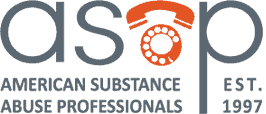By the end of this year, more than three dozen communities across the country will have begun participation in a national initiative designed to bring together a diversity of stakeholders to solve local problems related to addiction.
Facing Addiction with NCADD so far has announced nine new communities for 2018 as the latest participants in its Communities Project, and the national advocacy organization intends this year to add a total of 25 communities to an effort that was launched at 15 pilot sites in 2017. The national organization grew out of the recent merger of a longtime advocacy leader in the National Council on Alcoholism and Drug Dependence (NCADD) and the three-year-old coalition Facing Addiction.
Facing Addiction with NCADD’s national director of outreach and engagement tells Addiction Professional that the effort is designed to mobilize broad coalitions of local stakeholders (representing sectors from public health to prevention to family advocates) to identify and take action on a small number of drug-related challenges in their communities. For one community, a primary goal might be to establish its first sober home. For another, the focus might be on a broader stigma reduction campaign.
“We like to go into communities that haven’t necessarily done a lot yet, but where people there are ready to get down to work,” says Facing Addiction with NCADD’s Michael King. Demonstrating a commitment to act is critical to a community being selected, according to King.
Not easy to mobilize
The initiative, King says, grew out of the thought that community organizing is needed in order to take traditional advocacy to the next level. The work is by no means easy, as King explains to local leaders who participate in the training sessions for the Communities Project. Even amid all of the current headlines locally and nationally on the drug issue, advocates will find that not all residents of a community share anti-drug leaders’ level of engagement on these topics.
“We cannot assume that everyone has the same sense of urgency around this issue as we do,” says King.
Each selected community has an individual who serves as project liaison. In the local trainings that Facing Addiction with NCADD conducts, a broad audience is invited and the agenda includes an overview of community organizing and a start to the process of identifying the local coalition’s goals.
Organizers urge local coalitions to reconvene soon after the training to decide on the one to three goals that it makes sense to start with, says King. It is also important in this process to shed any lingering disagreements and unite around a common purpose, he says.
New communities that have been selected for the project so far in 2018 are Baltimore County, Md., Los Angeles, Greenville, S.C., Richmond, Va., the Tampa Bay area of Florida, and four communities in Ohio: Canton, Cincinnati, Columbus and Dayton.

